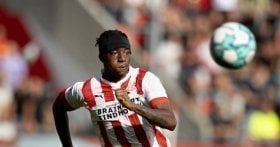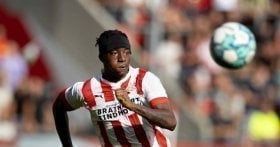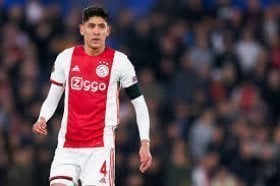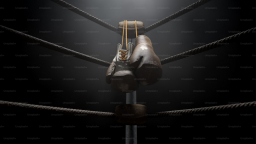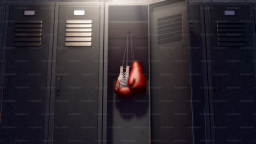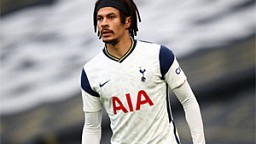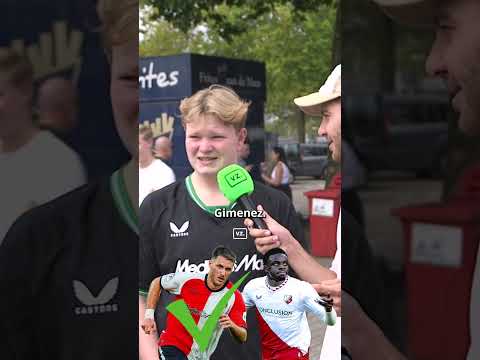Marco van Basten: A Manager’s Controversial Journey
Guest writer Michel Nasrallah looks into Marco van Basten’s journey as a manager and his life of ups and downs. Widely regarded as one of the best strikers of all time, Marco van Basten is a legend of the game whose career was cut short due to a horr

Guest writer Michel Nasrallah looks into Marco van Basten’s journey as a manager and his life of ups and downs.
- by Michel Nasrallah
- Follow him on X @NasrallahMike
Widely regarded as one of the best strikers of all time, Marco van Basten is a legend of the game whose career was cut short due to a horrific ankle injury. His managerial career was even shorter due to psychological fitness issues. He completed a coaching course with KNVB and he was appointed as the ‘Bondscoach’ (national team manager), taking a hot seat too soon. Spending most of his life coping with trauma, grief and setbacks, his resilience was put to the test. One horrendous tragedy marked his childhood; he never overcame the loss of his childhood friend, Jopie, who fell through the ice in front of his eyes when van Basten was just seven. “The cap remained afloat in the sea. I have a fairly good memory”. Witnessing his parents’ separation and his mother’s long illness, the Swan of Utrecht was revitalized when he embarked on his professional football career. He scored more than 300 goals and claimed three Ballon d’Or awards in just nine seasons. However, another tragedy resurfaced: A career-ending ankle injury forced him to announce his retirement, causing both physical and mental distress. “I ran and I snapped. But I showed nothing of the pain. I felt that the whole stadium was filled with grief. For what had been. For me. For who I had been. I was on the verge of tears, but I showed nothing. My lap was at an end. Something had changed. Something fundamental. Football had been my life. I had lost my life. That day I died as a footballer. I had been a guest at my own funeral.” Marco somberly reminisced about the emotional and unfortunate farewell at the San Siro that left Fabio Capello in tears.
He had to be very cautious before he decided to start a coaching career. After all, for such a profile, that would be the only way to stay directly connected to the football pitch. But was he conditioned for it? Was he adequately prepared for it? Did he possess the requisite hunger and skills? It is not about the great player-modest manager debate; it is about some cases of handling the pressure as a player and not being able to cope with it as a manager. “There’s a big difference between being a footballer and being a coach,” he told Sky Sport Italia. “The coach needs to lead the team, he needs to talk to the players and be in control of things like discipline. All a player has to do is play.” This is probably why it shouldn’t be a surprise anymore to why a great player would fail as a coach. Today’s coaching is much more about the spirit in the dressing room and the mental fitness of the whole squad than it is for tactical and technical aspects. As a player, you are managing yourself. As a coach, you must oversee a group of 23+ players, assistant coaches, and staff members, each with different backgrounds, behaviours, objectives, and personalities. You need to navigate your relationships with these diverse personalities and lead them into battle. It demands significantly more mental and psychological efforts and he simply didn’t seem to have the will nor the energy to go down this road. He never really wanted it from the very beginning. “I don’t want to be a coach” he asserted just after he retired.
From the technical / tactical perspective, he had acquired knowledge of the three phases of the game from some of the best in the field. He incorporated some defensive drills and instilled strict discipline, drawing from his experiences with Arrigo Sacchi and Fabio Capello, and everything else, including transition and ball possession from Johan Cruyff and Rinus Michels. He pursued spectacular performances when in possession and preferred to defend his final third with a block-group of nine players when out of possession. The overall performance versus the Ivory Cost in the World Cup 2006 first round reflects just that. The fact that Dirk Kuyt was a regular despite his lack of pace, reveals what he expected from his forwards and wingers. He had even guaranteed Salomon Kalou a spot in the World Cup 2006 squad if he could obtain his Dutch passport, but the latter got denied Dutch citizenship by Immigration Minister Rita Verdonk. No hesitation in making bold decisions, one of which, was to start with a 3-man defensive line against the Czech Republic in the first World Cup 2006 qualifier, daring to emulate Cruyff’s Barcelona side.
Rated by the world greatest football icons as the most complete player-striker athlete of all times, combining a perfect right foot, left foot, deadly headers, acrobatic goals, decisive goals, smart movements off the ball, dribbling using speed, dribbling using feints, crucial assists, free kicks, penalties; as a coach he demanded nothing less from his players. He sought perfection even when it was counterproductive, especially when it didn’t align with realism. He struggled to find the ideal balance between his my-way-or-the-highway character and effective communication.
His man-management skills were mediocre and his character flaws didn’t help. At the World Cup 2006, the media focused on Ruud van Nistelrooy’s early substitutions against Serbia and Ivory Coast. San Marco replied that he wasn’t pleased with Ruud’s positioning and lack of movement when out of possession; the latter didn’t take kindly to this statement and confronted the Bondscoach in the camp. Consequently, Ruud was immediately benched and Portugal with the likes of Figo, Deco and Ronaldo had an advantage hours before the battle of Nuremberg. Mark van Bommel also saw himself replaced during that match, marking the third time in this tournament and he didn’t feature again for Oranje under Marco’s reign. Marco wasn’t the type of manager who would readily acknowledge his shortcomings, but he was honest enough to admit his mistakes later on. He conceded that he was wrong to publicly criticize Ruud and recognized that van Bommel was THE key player in the Oranje squad that reached the World Cup 2010 final.
He had no fear of making unpopular decisions and had no intention of modifying his behaviour based on the player. He didn’t hesitate to implement some off-pitch drills to improve collectiveness, sometimes eccentric enough to leave Luis Suarez in shock. “For me it is very important that every player plays for the team first and not for himself”: A great theory that he embodied as a player; one might remember the third goal for the Netherlands against Germany at Euro 92 when, during a Dutch attack from the right, Van Basten, who hadn’t scored yet in the tournament, pointed his finger backward asking Aron Winter to cross to Dennis Bergkamp, not to him, as he was fiercely shadowed by Jurgen Kohler. Instead of undertaking the challenging task of convincing his top players to act so, he opted for the much easier route of simply not selecting some of them. Clarence Seedorf and Edgard Davids didn’t make it into the final squad going to the World Cup in Germany; however, Kew Jaliens and Tim De Cler did. There was no place for Roy Makaay or Patrick Kluivert, but Jan Vennegoor of Hesselink was included. The majority of the squad had not previously participated in a World Cup, and the Dutch campaign came to an end in the second round. They managed to score just three goals while accumulating 16 yellow cards and being sanctioned for more fouls than each of their first-round opponents. One of Arrigo Sacchi’s most famous quotes was that he believed Marco was the best player he had coached but also the most difficult. Sacchi certainly excelled in man-management compared to Marco. Despite the fact that these tough characters are often game-changers and play an essential role in the dressing room, Seedorf and van Bommel, excelling and decisive at club level, were not included in the Euro 2008 squad.
The level of stress escalated with every game, with every season, with every team he managed and it became evident in the results: A decent record with the Netherlands with just 6 defeats in 52 matches, was followed by 11 defeats while managing Ajax in 45 matches, 27 defeats with Heerenveen and then 3 defeats with AZ in just 5 games before he decided to take a break. His soul was weary. Persistent and cumulative stress had taken a toll, leading to heart palpitations following the loss of his father. Health comes first, and there’s no way around stress or the emotional distress it causes. The player’s reputation was too outstanding, but the fans are unforgiving and some analysts are harsh. Nevertheless, football was his life, and he tried to persevere. Eventually, he made the decision to shift to the role of AZ’s assistant coach, then as Oranje’s assistant coach to Danny Blind, and finally took a position with FIFA as a technical director, gradually stepping out of the limelight. The fire in his belly had dimmed, and his passion for the sport had waned. Marco van Basten now spends his time with his family, occasionally analysing matches on TV. He remains true to his flaws and unpopular opinions. If he had been the manager of the Dutch national team during the last World Cup in Qatar, one can imagine that Virgil van Dijk might have been benched after the match against Ecuador, much like Ruud Van Nistelrooy against Portugal. Football has evolved, but he hasn’t, and he won’t. After all, why would he?
“I will never be a coach again,” he declared.


























